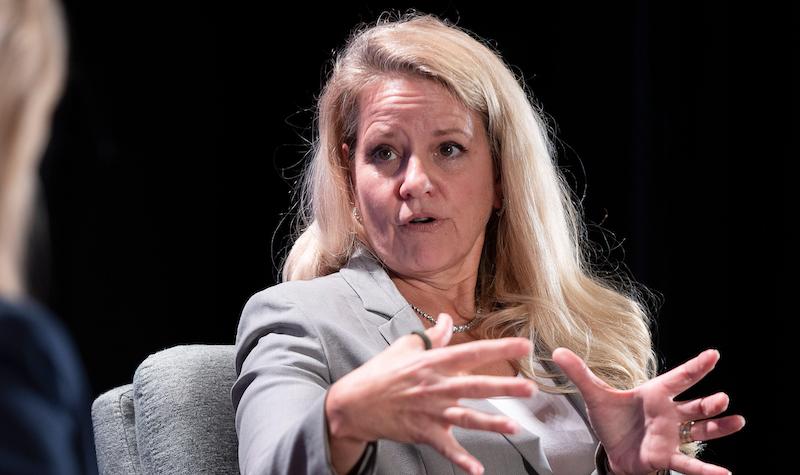
SpaceX President and COO Gwynne Shotwell.
One of the biggest advantages private companies have over government programs is their appetite for risk, says SpaceX President and COO Gwynne Shotwell.
“When you’re using taxpayer direct dollars to fund something, you don't want to fail,” Shotwell said Dec. 17 during a live-streamed interview with the Center for Strategic and International Studies’ Kari Bingen, director of the Aerospace Security Project.
“I think that's a huge mistake because you learn so much from your failures. You don't learn a lot from success except that one thing worked. The more failures you have, the more you understand your system and its limits. We had that luxury,” she says.
“Going forward, I really hope government procurement embraces failure—on development, not on operations,” she adds. “Operational failures are not OK.”
Pushing back on the government has been something of a speciality of SpaceX. The company once sued the U.S. Air Force to open the National Security Space Launch market to competition. A decade later, the U.S. Space Force and SpaceX worked together to get a GPS III satellite into orbit in a fraction of the usual time.
The mission, known as the Rapid Response Trailblazer (RRT), launched on Dec. 16, kicking off a three-flight blitz of Falcon 9 flights over the next 22 hr. During that time, SpaceX also returned a Dragon cargo ship to Earth.
“RRT was extraordinary. The Space Force called and said ‘How fast could we do this?’ And we did it in four months from the time we got the call to liftoff. That’s not something the Space Force or the Air Force would have engaged in 10 years ago,” Shotwell says.
“We've been pushing government organizations to try to do this exact thing,” she adds. “We all understand the utility of rapid launch. Rapid, tiny launch is good, but rapid, big launch is really important, too.”






Comments